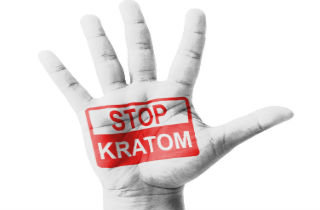You know about Kratom addiction potential -you want to stop using Kratom! So, what can you expect during Kratom withdrawal? And how can you cope? We explore here, and invite your questions about withdrawal from Kratom at the end.
Severity of Kratom withdrawal
From personal and anecdotal experience, the nature of withdrawal from Kratom and Kratom effects on body in terms of severity and occurrence seem to depend on a number of factors. The factors that contribute to Kratom withdrawal include:
1. Duration of use – The length of time you have been taking Kratom. The longer you have been using it the more severe the symptoms.
2. Type of Kratom – The type of Kratom you have been taking. Withdrawing from highly concentrated extracts of the alkaloids found in Kratom results in a worse withdrawal experience. Method of administration usually contributes to withdrawal symptoms, but as Kratom snort is not recommended, we assume that you are taking oral doses of Kratom.
3. Previous mental health issues – Anecdotal evidence from online forums suggests that those who suffered from depression prior to becoming dependent on Kratom find withdrawals particularly difficult.
4. Personal pain tolerance -It also seems that some people just manage Kratom withdrawals better. There are many who claim quitting Kratom even after more than a year’s daily use is no more difficult than quitting caffeine, while others talk about it like being hell on earth. So there certainly is a subjective element.
My Experience withdrawing from Kratom
I have personally withdrawn from Kratom after more than a year’s use and can therefore talk about my own withdrawals which I have been led to believe mirror those of others but not necessarily in their severity or duration.
I took Kratom leaf twice a day, ever day for over a year. I decided one day to quit cold turkey; I used up the last of my supply and held my breath. I knew what was coming, I had tried to quit in the past but had always given up due to the crippling sadness that had enveloped me.
Psychological Kratom Withdrawal
Within 8 hours of my last dose of Kratom, I began to feel anxious and incredibly sad, despondent and plain depressed. It is difficult to describe the sense of loneliness and desolation I felt, everything seemed amazingly bleak. For me, this aspect of withdrawals was by far the most difficult to cope with and it continued for over a month. I must stress again that this was my experience others state that all their symptoms including the despondency disappeared after 4 or 5 days.
Physical Kratom Withdrawal
The other symptoms I experienced during Kratom withdrawal were all physical and ‘only’ lasted for 3 or 4 days. These self-reported symptoms during Kratom withdrawal are similar to those seen in individuals undergoing opiate withdrawal but are far less severe. If you have experienced other symptoms, please share them in the comments section of this article. The symptoms of physical withdrawal from Kratom included:
- anxiety
- cold-like symptoms
- insomnia (the tick-tock of the clock just went on and on, night seemed as if it would never end)
- lethargy/apathy
- RLS – restless leg syndrome (it felt as if my legs were electrified and this contributed to insomnia)
- sweating
Coping with Kratom Withdrawals
You can get through Kratom withdrawals. Kratom withdrawal can be a mere inconvenience for some and difficult for others. Here are some tips and suggestions based on my own experience about how you can cope during the period of Kratom withdrawal. Again, if you have other ideas, please leave them at the end.
- I would advise anyone planning to withdraw from Kratom to seek the advice of a sympathetic physician. A prescription for a sedative like diazepam can help with the anxiety and insomnia. The problem is, though, that many doctors have never heard of Kratom and so will not know what to do.
- You might want to take time off work/responsibilities during the initial stages of withdrawal as it can be very difficult to find the motivation to get tasks done.
- It is also good to have a friend/loved one with you during the first few days as you can get quite despondent. This should be someone who knows that you are going through Kratom withdrawals and who knows what to expect as you go through the process of withdrawal.
- If you are prone to depression anyway, then you really need to see a mental health care professional prior to quitting Kratom.
Kratom withdrawal questions
If you are going through Kratom withdrawal, you are not alone! We invite your questions about Kratom withdrawal. Or maybe you have an experience or feedback to share with other readers. Please let us know. We try to reply to all questions and comments with a personal and prompt response.









Related Posts